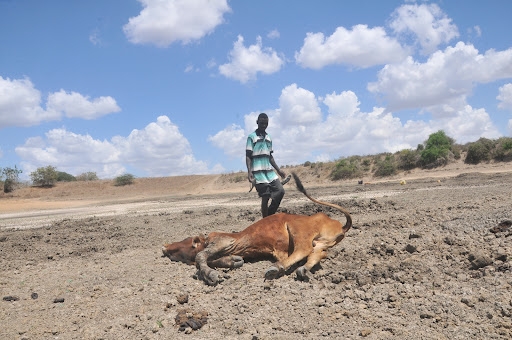In early July 2023, President William Ruto lifted the six-year logging ban in state forests, leaving some environmentalists and politicians terming it as a political decision that could likely set back conservation gains.
However, in his defence, Ruto said there was a need to open up the economies of areas that depend on timber and other forest products.
“We have lifted the moratorium that had been put in place and we have said we will do it in an organised way,” said Ruto.
Ruto's defence
President Ruto said his administration had put in place measures that will see only mature trees harvested while more are planted.
He further defended the government's move saying that mature trees are decaying in the forests yet the country imports timber.
Ruto said that those who import furniture will have to pay tax since he wants furniture made within the country.
"Trees are decaying in the forest while people are struggling to get timber. Do you see the foolishness? We have lifted the ban so that we can harvest mature trees. Whoever imports furniture will be taxed because we want all that to be made in the country," Ruto said.
This move came at a time when his administration is pushing to plant 15 billion trees across the country in a bid to restore forest cover in the next 10 years.
Back in 2018, the Task Force on Forest Resources Management and Logging Activities recommended a ban.
It was after a report stated that illegal logging of indigenous trees was a major threat to forests.
Following the recommendations, a 90-day ban on logging was imposed on February 24, 2018, and later extended to November 24.
It was again extended for a year to facilitate sector reforms.
The ban restricted the extraction of timber from all public and community forests, giving the Kenya Forest Service more time to fully implement new measures to protect forests.
The task force was created following a public outcry over the drying rivers due to wanton forest destruction.
The aim of the ban was therefore to increase Kenya's tree cover and improve the environment, including water supply.
When the state announced the move to lift the ban, critics said the move would increase deforestation.
Decision challenged
The Law Society of Kenya challenged the lifting of the ban, saying there was no public participation in such an important issue before the prohibition was removed.
LSK sought orders to stop the implementation of the directive by President Ruto to lift the ban.
A gazetted inspector of the environment said the decision to lift the nationwide ban on logging in state forests will do more harm than good.
Benson Wemali said President Ruto’s ‘roadside’ declaration was reckless and has already started seeing the destruction of forests in Elburgon, Molo, Limuru and other places where the timber industry thrived before the ban.
“Those who are going to harvest trees are businesspeople, not environmental experts. This kind of declaration will negate all the gains we had made during the ban," he said.
Environmentalists from Climate Clock Kenya also strongly discouraged the move by the government.
Through the East Africa Region lead Pauline Owiti, they said the move would accelerate deforestation.
"We call on the government to enact and enforce legislation to protect and restore biodiversity and critical ecosystems like the forests," she said.
Commercial forests only
Ruto later defended the lift of the ban on logging saying the move will not hinder tree-planting exercises.
"I know there has been a concern, especially on the lift of the logging ban. We will make sure the exercise does not lead to what we saw in the past," he said.
Environment, Climate Change and Forestry Cabinet Secretary Soipan Tuya also reiterated that the lifting of the logging ban only applies to commercial plantations.
Tuya said the ban however does not apply to indigenous forests as misconstrued by a section of Kenyans.
"When you hear about the lifting of the ban on logging, it only applies to commercial plantations which have not been touched since 2018 due to the moratorium," Tuya said.
Unconstitutional
The Law Society of Kenya went to court and challenged the move.
The High Court then declared the directive by President William Ruto to lift the ban imposed on logging unconstitutional.
Environment and Land Court found that the directive did not follow the required procedure by involving public participation.
It added that the President acted on the premise of court proceedings and revoked the same, noting that there was no evidence of public participation before the consent.
"A declaration be and is hereby issued that the lifting of the moratorium on logging activities was not by the President, but by the consent of the parties in Nyeri and Meru High Court, which lacked public participation and therefore, unconstitutional, null and void," Judge Oscar Angote ruled.
Activists immediately celebrated the move by the court to bar the government from lifting the ban on logging.
The activists from Greenpeace Africa said the environment court put a reminder by barring the freeze on the ban saying the future cannot be sacrificed for temporary gains.
Through their community manager Tracy Makheti, they said the ongoing climate crisis continues to affect lives worldwide, necessitating such bold decisions.
"We celebrate this news. The Kenyan government, along with its counterparts across the continent, has the opportunity to take a leading role in showing the world that we do not need to cut down our forests to develop," she said.
"Alternative solutions which prize our custodianship of nature are possible, as long as we are brave enough to pursue them."













